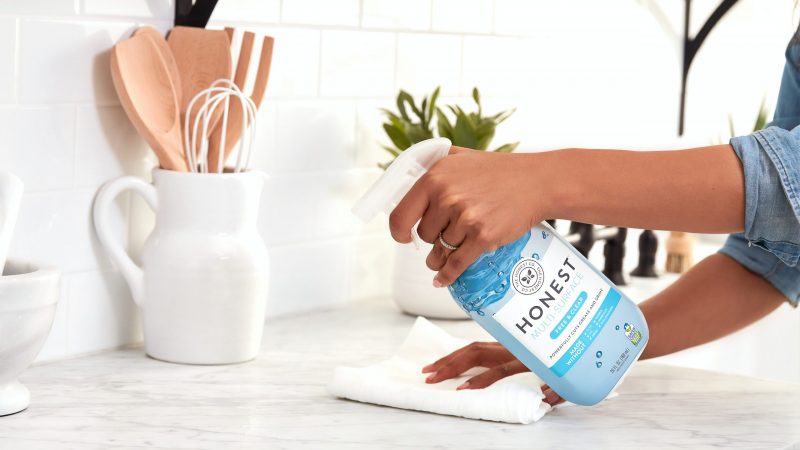Looking after our mental health and wellbeing can be tough at the best of times. But during a global pandemic like Covid-19, there are even more stressors than normal. We’re having to adapt the way we work, with many of us now working from home and having our usual routine thrown out of sync. Some of us are still going out to work, risking our health every day to make sure things can continue to run as normally as possible. Many of us are facing job or financial uncertainty, are concerned for ours or our loved ones health, and miss doing the things we normally do.
The most important thing to remember through all of this is that we’re all being affected in some way by what is going on around the world at the moment. We’re all in this together! That’s why the NAS wanted to try and share some tips to help you maintain good mental health and wellbeing during this unpredictable time.
1. Maintain good sleep – sleep is so important for our overall wellbeing and mental health. If you are now working from home and don’t have to get up and commute in the morning, it’s easy to fall into the pattern of staying up longer, and getting less sleep than usual. Alternatively, if you’re feeling down about things, you may find you’re spending more time sleeping than before. Try your best to keep to a consistent sleep schedule as much as possible, aiming for an average of eight hours sleep per night. If you’re someone who feels anxious or their mind goes into overdrive before sleeping, try to switch off from any technology (TV/phone/computer) an hour so before you want to go to sleep. Do something you find relaxing, such as reading a book, having a hot drink, listening to calming music or doing some meditation.

2. Stay connected – it’s easy to feel isolated quickly when you aren’t going about your daily routine and socialising as usual. Make sure to check in with your colleagues, family and friends through video chats, phone calls, WhatsApp or via social media. We are lucky to have many means of communication at our fingertips. One of the benefits of being an NAS Member is access to a 24/7 Everyday Advice Line (details of which can be found in our online Members Area) where you can confidentially access counselling and advice services 365 days a year.
3. Be physically active – it may seem hard to keep active if you now find yourself stuck indoors, especially if you are a gym goer or someone who is moving around a lot in their daily job. However you can find plenty of workouts online to follow, or you can make up your own! Exercise isn’t just great for physical health but mental health too. It stimulates the production of serotonin and releases endorphins which enhance your mood, pumps blood to the brain which helps you think more clearly, and even increases the size of the hippocampus, a part of the brain responsible for learning and memory.
4. Get some fresh air – taking a short break outdoors can leave you feeling refreshed and more energised. Fresh air helps to send plenty of oxygen through the blood and to your brain which equals more brain power! If you are lucky enough to have a garden, use it! If you don’t, try and make sure you are letting fresh air into your home by opening the windows every day. Current Government guidelines (as of 03.04.20) are that people can leave their house once a day for exercise. We advise maintaining as large a distance as possible (minimum of two metres but ideally much more) between yourself and others, whilst you get some fresh air. As per Government guidelines, you are allowed to go out with someone else from your household but cannot meet with anyone else.

5. Eat healthily and stay hydrated – what with all the panic buying that’s been going on, it may be hard to buy what you normally have on your shopping list. But if at all possible, try your best to keep your fruit and veg intake up. If you’re working from home and have healthy food in, don’t be tempted to order a takeaway or automatically reach for the chocolate. And of course, drink lots of water too – it increases energy, can prevent headaches and generally has a lot of benefits that will make you feel physically well which contributes to better mental health too.
6. Do something you enjoy – granted, this is limited in the current climate to something you can do indoors, however there are still many more options than there would have been in the past! This might include watching re-runs of your favourite TV show, working on that blog you’ve always wanted to publish, learning a new language online, or baking a cake. It’s positive for your wellbeing to do something that brings you joy, and takes your mind off of the negative news across the media.
7. Limit your alcohol and substance intake – with so many stressors at the moment, it could be easy to fall into a pattern of drinking or substance abuse. However while it may seem like these are having a temporary positive impact on your mood, in the long term both cause major problems for both physical and mental health. Recommended guidelines for alcohol intake can be found here. Advice on getting help with drug use can be found here.

8. Improve your surroundings – most of us will now be spending more time at home than possibly ever before. Use this time to keep your surroundings clean, tidy and clutter free. Not only is this worthwhile from a hygiene standpoint during a virus outbreak! But not having clutter around us can benefit our mental health and reduce anxiety. As mentioned above, try to get some fresh air into your home. If you are working from home, ideally sit in a room that gets good natural sunlight and if that isn’t possible, ensure you’re in a room with adequate lighting so you aren’t squinting at the computer.
The NAS is proud to be signed up to the Building Mental Health Charter, making a commitment towards improving mental health in our industry. Some additional mental health and wellbeing sources we advise checking out are:
MIND – Mental Health Charity
Mentalhealth.org
NHS UK
Lighthouse Charity – Construction Industry Helpline
Samaritans Charity


